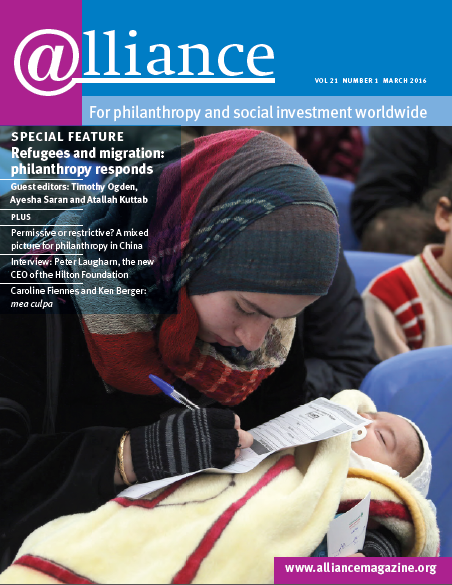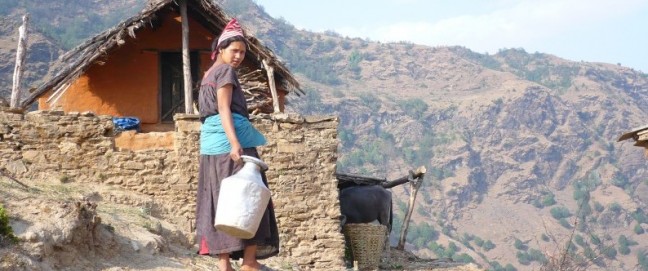This is a difficult time for philanthropy and civil society in China. Since Xi Jinping became General Secretary of the Chinese Communist Party in November 2012, China has cracked down on feminist, labour and political activists, closed some civil society organizations, and launched a significant effort to control the activities of foreign foundations, NGOs and other non-profits. Yet in other areas the situation is brighter. Hundreds of new private foundations and social enterprises have been established in recent years. The space for philanthropic activities that focus on the provision of social services and social innovation remains considerably more open.
Two recent policy and regulatory steps illustrate these shifts towards both more control in sensitive areas and more openness in areas not perceived as challenging the Chinese Communist Party and government. The draft Law on the Management of Overseas NGOs, released by the Chinese National People’s Congress in spring 2015, would centralize control of virtually all foreign foundations and NGOs, and arguably foreign university programmes and trade associations, placing them under the Chinese Ministry of Public Security rather than the multiple government agencies that now regulate this sprawling range of organizations.
The draft Law would limit foreign foundation and NGO activities to a much narrower range of fields, allowing them to working only in approved fields and areas of the country and likely eliminating most foreign philanthropic work in legal rights, governance and other important fields. It would also add highly restrictive new registration requirements for foreign foundations, NGOs and other groups; require all foreign foundations and other groups to partner with a Chinese ministry or other group that would also have to report to security authorities; and require foundations and others to report both in advance and after the fact on their grants and other activities, among a broad menu of restrictive provisions.
‘There was a chorus of domestic and foreign opposition to the draft Law when it was released for comment in the spring of 2015.’
There was a chorus of domestic and foreign opposition to the draft Law when it was released for comment in the spring of 2015. In the face of that wave of opposition, Chinese political and security leaders sought to reaffirm that they welcomed foreign philanthropy and NGO activity in China, and put the law on the backburner. There it remains, as Chinese policymakers debate whether to go forward with this highly restrictive statute, ameliorate some of its more draconian provisions, or leave the situation as it was until early 2015.
On the domestic side, the situation looks brighter for philanthropy and social innovation. A new national Charity Law has been released (in several successive drafts), the culmination of many years of drafting and debate. If passed this year as predicted, it would make things a bit easier for the burgeoning Chinese philanthropic and non-profit sector in a number of ways, including: simplifying registration for a wide range of Chinese philanthropic and social organizations; allowing a carefully limited range of fundraising to go forward (which is an advance, since much fundraising by Chinese groups remains formally banned); and encouraging more giving and tax incentives.
Organizations interested in major political change would not be permitted, of course; and the full range of philanthropic and non-profit organizations would remain subject to significant state controls. But the Charity Law is widely regarded in the Chinese philanthropic and non-profit arena as a step forward.
The Chinese Communist Party and government are determined to restrict – or even stamp out – foreign and domestic philanthropic and non-profit activity that it perceives may encourage Chinese citizens to oppose state policies or undertake labour, political and other actions. Yet China also seeks to encourage a widening role for domestic foundations and other organizations that provide social services and encourage social innovation. These dual policy goals will result in continued steps towards both more restriction and more openness in the years ahead.
Mark Sidel is Doyle-Bascom Professor of Law, University of Wisconsin-Madison, and consultant (Asia), ICNL. Email mark.sidel@wisc.edu







Comments (0)